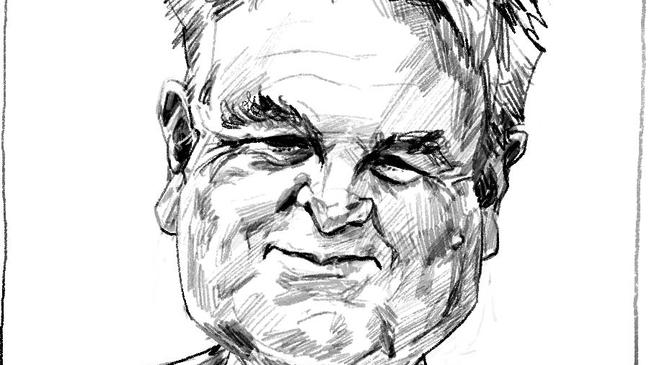Australia’s Richest 250: Does where you’re born determine your wage?
Has life dealt you a cruel blow such that your talent remains unappreciated? Well, I have good news for you.

Has life dealt you a cruel blow such that your remarkable talent remains untapped and unappreciated? Well, do I have good news for you: perhaps it isn’t your fault. Perhaps the reason you’re not a billionaire isn’t because you don’t have the big ideas and an appetite for risk, but rather that fate has delivered you to the wrong place on the planet.
That’s right. The sole reason you are not really really rich is your geography (or, of course, you were born into the wrong family). Change your town or country and you’ll be rolling in it.
Let me introduce you to a nifty demographic concept I call the Billionaire Probability Ratio, or the BPR. The BPR shows the number of Australians required to produce a single billionaire. According to this year’s The List – Australia’s Richest 250, we have 117 billionaires.
Divide Australia’s current population (say, 25.5 million) by 117 and it produces a billionaire probability ratio of 1:218000, which means that every chunk of 218,000 or so Australians should, theoretically, support one billionaire.
And when you think about it, it kind of makes sense. Billionaires are brilliant at leverage: they deliver (or invent) a product or service that everyone is prepared to pay a kind of royalty (call it a profit margin) to access. That product could be a piece of new software, or it could be the property rights to a mine and/or a licence to export a mineral resource.
This means that Sydney, with just over five million people, should have 24 billionaires and that Melbourne should have 23. In fact, according to the 2020 list, Sydney is home to 32 billionaires while Melbourne is home to 25. Billionaires bunch in big cities.
And again, that kind of makes sense. The BPR is skewed by a city’s capacity to deliver leverage via, say, a manufacturing plant, or a financial services business, or as a consequence of the frisson created by a bunch of entrepreneurs deal-doing and fizzing about in the same metropolitan crucible.
But for every billionaire Sydney snaffles over and above its fair share, other cities and the regions are denied the pleasure of the company of a local billionaire. If my BPR logic is correct, then Tasmania with half a million people should have two to three billionaires, Canberra (pop 390,000) should have one-and-a-half billionaires and Geelong (pop 250,000) should have one.
But of course the BPR isn’t a precise tool; it’s a rough guide at best. (Tasmania, for example, has no billionaires.) It can depend on how a city or region is defined and, to be fair, a billionaire can also establish a business in one region but choose to live in another region, or indeed country.
So how does the Australian BPR compare with that of other nations? If this figure were to vary, wouldn’t that variation reflect upon a country’s social and political system? Does Russia, for example, produce more billionaires per capita than America? (Short answer: no.)
The problem with constructing a BPR across countries is the accuracy of the base data and currency differentials. But I figure it’s worth a shot.
US business magazine Forbes produces a global rich list every year. In the 2019 edition, the Forbes methodology for estimating an individual’s net wealth expressed in US dollars produced an estimate of just 25 billionaires in Australia, which converted to a BPR of 1:984000.
On the basis of this “global” BPR, Sydney and Melbourne would each have five USD billionaires and Tasmania wouldn’t have any. But the bunching effect that sees billionaires clustering in Sydney and Melbourne also applies at a global level.
There are, according to Forbes, 63 billionaires living in Hong Kong, delivering a BPR of 1:117,000, which makes the island state eight times more “billionaire fertile” than the Australian continent. Then again, many of Hong Kong’s billionaires probably own businesses on the mainland but prefer to live in Hong Kong.
The US, on the other hand, has 540 billionaires delivering a BPR of 1:606000. Mainland China has 251 and a BPR of 1:5.5 million. It takes 606,000 Americans and 5.5 million Chinese to produce a single billionaire in each country. It can be concluded that America offers a more “billionaire-fertile” environment than China.
Australia’s “billionaire creation” capacity – about one per million or so, using the Forbes methodology – is similar to Taiwan’s (1:952000) and a bit better than Canada’s (1:1123000), but not as good as the equivalent figure for the US (1:606000) or Germany (1:690000). Canada looks billionaire-unfriendly based on these figures. However I wonder whether its entrepreneurial talent isn’t drawn south of the 49th parallel to the US? That’s one benefit of Australia’s isolation – we’re better able to hang on to our home-grown billionaires.
I am impressed with Sweden, which according to Forbes, is home to 26 (USD) billionaires out of a population of just 10 million, delivering a BPR of 1:384000.
I suspect the reason is that Sweden has been able to leverage its expertise in manufacturing into the European market. Another way to view it is to say that the Social Democracy of Sweden (high taxes) is almost twice as likely to produce a billionaire than the US and two to three times as likely to deliver a billionaire as Australia.
So there you have it. If you want to increase the odds of being a billionaire, then Australia isn’t such a bad place to live. And especially considering our current rate of population growth should deliver at least one new billionaire every year, or about three billionaires every two years based on the BPR.
Bernard Salt is managing director of The Demographics Group






To join the conversation, please log in. Don't have an account? Register
Join the conversation, you are commenting as Logout